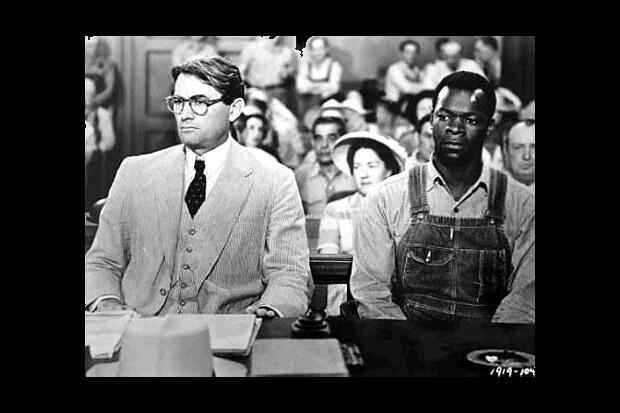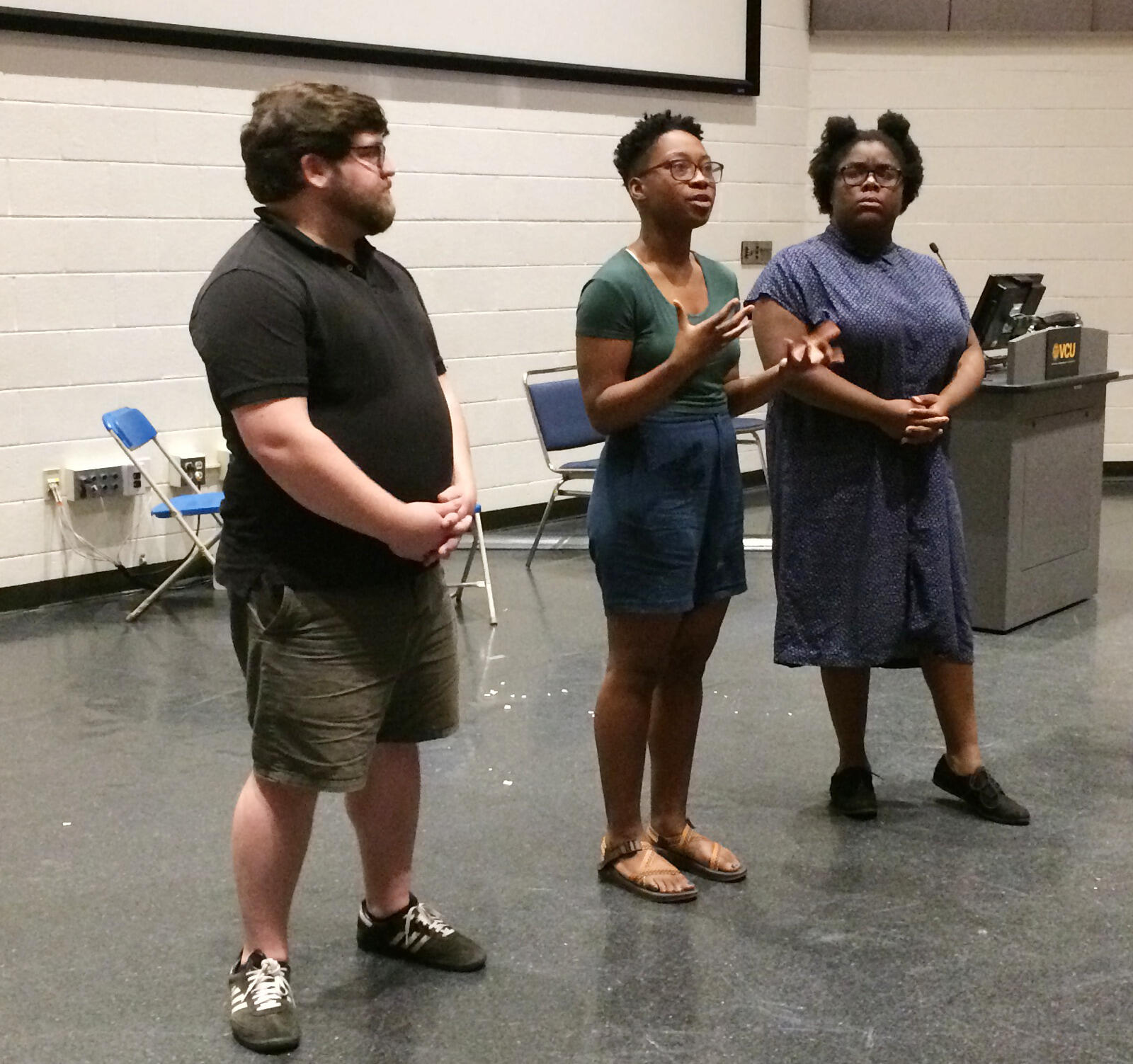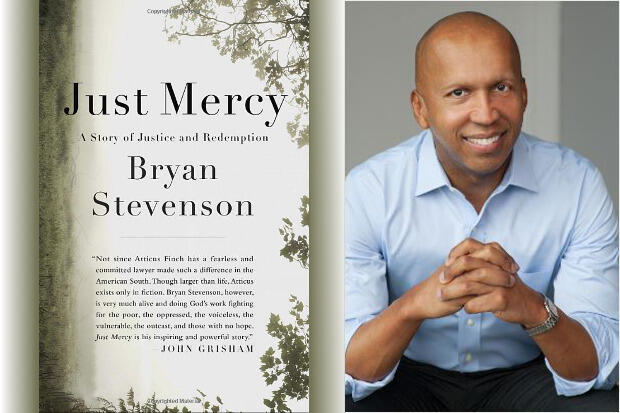
Oct. 21, 2016
VCU, Open High School students explore race and social justice at screening of ‘To Kill a Mockingbird’
Share this story
Atticus Finch paced around the courtroom and approached the jury box. A man’s life was at stake, he said. There was no evidence to support the rape charge against the defendant, Tom Robinson. The testimony of the prosecution’s witnesses was fabricated. And Robinson was physically incapable of committing the crime.
But Robinson was black. And this was Alabama during the Great Depression.
“Our courts are the great levelers,” Finch said to the jury, a group of white men. “In our courts all men are created equal.”

Photo by James Irwin, University Public Affairs
The jury found Robinson guilty anyway.
Finch and Robinson, of course, are fictional characters in Harper Lee’s Pulitzer Prize-winning novel “To Kill a Mockingbird.” But they also provide a prism through which people can discuss historic and contemporary race relations and social inequality, said Brii Howard, a sophomore in the Virginia Commonwealth University College of Humanities and Sciences.
“He sets out what justice is and what truth is,” Howard, a political science and sociology major, said of Finch after watching a screening of the film adaptation of “To Kill a Mockingbird.”
“I didn’t quite remember how blatantly he laid it out, that this is more than a rape case,” Howard said. “He said this is about race and we have to acknowledge it, that we cannot hold this man accountable for the prejudices we have and the biases we have. And it shows how that’s not enough when you don’t have certain privileges and you are perceived in a certain way.”
Howard, VCU student Taneasha White and VCU alumnus Pete Stauffer facilitated a discussion Thursday on race, the justice system, societal power and the role of community following a screening of the film. The event marked the start of a yearlong partnership between VCU and Open High School and is part of a series of free events related to the themes of the campuswide Common Book, “Just Mercy: A Story of Justice and Redemption.”
The 2014 autobiography by Bryan Stevenson tells the story of an idealistic, gifted young lawyer’s coming of age, providing a window into the lives of those he has defended and making an argument for compassion in the pursuit of true justice. Open High School students will read “Just Mercy” in the spring.
There are many similarities between “Just Mercy” and “To Kill a Mockingbird,” said Micol Hutchison, director of student success in University College.

“They both deal with race and injustice in the judicial system,” Hutchison said. “And though ‘To Kill a Mockingbird’ in some ways is very dated, there are some ways in which it’s clearly not dated. People can see ways in which there has been very little progress in the last 80 years and then some ways in which there has been progress — and how racial injustice has been fundamental to the criminal justice system from the beginning.”
That injustice can manifest in many ways, Hutchison said. In “To Kill a Mockingbird,” a lynch mob attempts to kill Robinson before his trial. In “Just Mercy,” Stevenson examines a more subtle form of injustice: unfair trials for the poor, “particularly for people of color,” Hutchison said.
“Though there are not literal lynching mobs, there is still unequal treatment,” she said.
Howard agreed. That famous scene in “To Kill a Mockingbird” in which Finch, played by Gregory Peck, makes his closing argument in defense of Tom Robinson is an example of how people can profess to believe in an ideal but fail to practice it, she said.
“I’ve always thought it was really ironic that he calls [the court] ‘the great leveler’ because it’s level until it’s not,” Howard said. “It should be. That’s the ideal and that’s how we think about it. But at the same time, justice was not served.”
Stauffer, a 2012 VCU graduate and administrative assistant in the Department of Psychology, said discussions like this one allow students to look at progress through a more nuanced lens. He remembers reading “To Kill a Mockingbird” in high school.
“But I don’t remember drawing parallels to contemporary times,” he said. “It was more of a ‘let’s review the past and see what it was like’ instead of analyzing what it is like now. It’s really beneficial for the students to compare, to take the time to see the ways in which we haven’t progressed very far. Violence against black men at high rates happened in the past and it’s happening now.
“So we have made progress and it’s good to remind ourselves of that, but it’s also good to remind ourselves not to be complacent.”
Subscribe for free to the weekly VCU News email newsletter at http://newsletter.news.vcu.edu/ and receive a selection of stories, videos, photos, news clips and event listings in your inbox every Thursday.
Subscribe to VCU News
Subscribe to VCU News at newsletter.vcu.edu and receive a selection of stories, videos, photos, news clips and event listings in your inbox.









